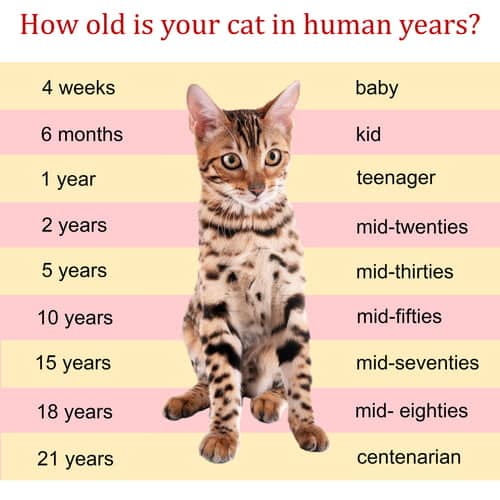The lifespan of a cat is generally about 10 to 15 years, but some cats can live for more than 20 years. The lifespan of a cat is affected by many factors, including breed, genetic factors, living environment, eating habits and health status. Here is a detailed introduction to cat lifespan:

Breed Differences: Cats of different breeds may have different lifespans. Generally speaking, the life span of some purebred cats may be shorter than that of ordinary cats because purebred cats often have some genetic diseases.
Genetic factors: A cat’s lifespan is also affected by genetic factors. If your cat's parents or grandparents lived longer, they themselves will likely live longer.
Living environment: A cat’s living environment will also affect its lifespan. Cats are likely to live longer if they live in a safe, comfortable environment and are well cared for and loved.
Eating Habits: Good eating habits are crucial to your cat’s health and longevity. Giving your cat nutritionally balanced food and avoiding overfeeding and poor eating habits can extend your cat's life.
Health: A cat’s health also affects its lifespan. Taking your cat to the veterinarian for regular check-ups to prevent and promptly treat diseases can help extend your cat's life.
Generally speaking, the life span of cats is generally about 10 to 15 years, but some cats can live for more than 20 years. In order to allow cats to live longer, owners should pay attention to caring for and caring for cats, provide a good living environment and eating habits, take cats to veterinarians for regular check-ups, and prevent and treat diseases in a timely manner.
animal tags:
We created this article in conjunction with AI technology, then made sure it was fact-checked and edited by a Animals Top editor.